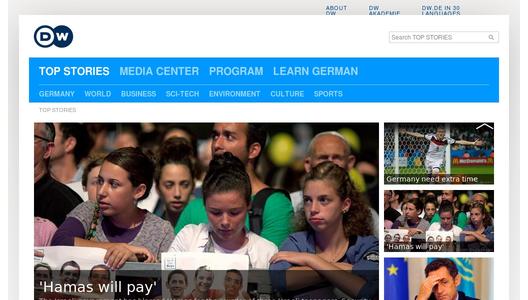In a video statement for Deutsche Welle's Global Media Forum in Bonn, Germany, U.S. journalist Glenn Greenwald says that "the proper relationship between journalists and those who wield power is adversarial in nature, one that works not toward the same ends, with the same perspective, but toward different ends, with different perspectives." Greenwald became widely known after publishing reports detailing state surveillance programs based on secret documents disclosed by former NSA insider Edward Snowden. Greenwald says he hoped to trigger a broad public debate on journalism and "reanimate the idea" that "the role of journalists, above all else, is to provide investigative checks and genuine limits on the way in which people who exercise power can wield that power." In his message, Greenwald also comments on the "extraordinarily close relationship between American media outlets and the U.S. government," which has intensified and accelerated since the terrorist attacks in the U.S. on September 11, 2001, and which according to Greenwald, "is a framework that has been replicated throughout the West."
To date, "There's been relatively little attention paid to the threat posed to a free press by state surveillance," says Greenwald. "When a government is collecting massive amounts of metadata, billions of telephone and email events every single day and therefore knows everybody who is communicating with everyone else, it becomes very difficult, if not impossible, for sources to come forward to journalists with the confidence and security that they can do so in secret, that they can do so without being detected. And this has posed a very genuine threat to a free press."
Greenwald emphasized that the surveillance revelations have triggered various debates focused mainly on the threats to privacy and democracy, but that a very important debate concerning journalism itself has also arisen that has a "profound effect around the world about how journalism is viewed and understood, not by just we as journalists, but by the public more generally."
The lawyer and journalist thinks that, "a lot of different impacts and reforms … will come from the revelations over the last year." One of the most important among them is the renewed understanding that journalists "need to use technologies to protect the confidentiality of our communications, especially with sources." Greenwald says, "That can really revitalize the process of journalism and the news-gathering process in a climate where pervasive state surveillance seems to be something that will be with us for quite a long time."
International partners and co-hosts
The 2014 Deutsche Welle Global Media Forum is held in cooperation with many national and international partners, such as Amnesty International, Deutsche Telekom, the Grimme-Institut, NATO, the United Nations, the Vodafone Institute for Society and Communications and Voices of Africa.
The conference is co-hosted by the Foundation for International Dialogue of the Sparkasse Savings Bank in Bonn. Support is also kindly provided by Germany's Federal Foreign Office, the Federal Ministry for Economic Cooperation and Development and the City of Bonn. Cooperation partner is The Right Livelihood College Campus Bonn.

